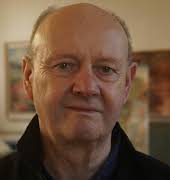
Meet the micro-schedulers who claim ultra-organising has changed their lives
Scheduled toilet breaks and minute-by-minute daily planning — is micro-scheduling really as effective as it promises to be for busy parents?
My wall calendar is life. Literally, our life as a family. It is a giant scrawl of markered-in playdates, dental appointments, parties, nights out and bin schedules. It is bursting with activities and reminders that pester us to Buy gift, pay ESB, change insurance provider, book hockey camp, give €2 for cake sale.
It is a colourful, chaotic snapshot of our current life and how it is organised. The rules are simple; whoever gets there first to nab a date gets it. That means if book club happens to coincide with football one Friday night and I write it in first, I win.
If somebody robbed my wall calendar, we would be lost in a sea of broken dates. Please don’t rob my wall calendar. And that’s my limit when it comes to organisation.
Advertisement
Some people are slightly less primitive than us and sync their fancy Google calendars or have elaborate family planning apps. And while I applaud such dedication to family life, I also acknowledge that everyone has their strengths — mine just happen to be a little more left-brain-sided.
That’s why I got chills down my spine when I discovered the newest, most Marie Kondo-esque movement for keeping time: ultra-scheduling. This is the daft art of having a plan for every minute of your day. Some extreme ultra-schedulers even get up at 4:30am and (inexplicably) allow themselves only three-minute toilet breaks — all to stay one step ahead of the clock.

It started with a YouTuber named Casey Neistat. In 2015, a video of his daily routine clocked up 2.6 million views. He starts his day at 5am; next is one hour of emails; three hours of exercise, 10 hours of work, three hours for family; another three hours of work and from 1am, four hours of sleep.
He glorifies his hyperactivity with ‘work harder’ written in neon on the wall of his studio and has a tattoo of ‘do more’ etched on his arm. Neistat’s mantra is that “free time is the enemy of progress”.
One wonders where the cleaning, meal prep and commuting times fit into this schedule. But his movement caught on with thousands of forums and websites dedicated to adhering to these strict daily timetables and he is now worth about $16 million, so what do I know, anyway?
Advertisement
35-year-old mother of two, Fiona Brennan is another micro-scheduler-lover. She outlined her day to the Mail Online. She makes sure the dishwasher goes on at exactly the same time every day and only checks emails in the three minutes it takes for the kettle to boil. Fiona’s precision routine charts her day minute by minute and includes a total ban on chatting to friends during the day (slapping a time estimation on this is, naturally, harder).
But, somewhat surprisingly, Fiona says she has never been happier. “I feel more in control of my time and get a great sense of achievement when I stick to my plan.”
But is this the false perception that you are running to stand still? It is similar to when I add things I’ve already done to my ‘to-do’ list just to get the satisfaction of crossing them out with a flourish of hand? Do people schedule scheduling?
Psychologists agree it is a control thing. Dr Ann Belford from Leeds University says that we are living in a society of “overwhelm”. “Our phones are beeping with notifications, we are easily distracted and busier than ever. It is harder to get things done and some people really don’t like the feeling that they are falling behind.
Microscheduling is compiling a deliberate amount of work that you aim to complete to help you feel more in control, but if it is too extreme it can leave you feeling like a slave to time.” In other words, if you keep lifting the bar, you have to jump higher and higher.

Advertisement
Perhaps it is a symptom of our obsession with perfection. Staying on top of everything – especially when you have a family – is unrealistic. Most of the time it is like herding sheep – naughty, sticky, little sheep who constantly want snacks
A rod for our own back?
You have to admire those who refuse to give in to the chaos — however, it seems to me a little like trying to put a shape on water. At this level, it is also unsustainable practically, as Hussein Kesvani — a London-based writer struggling to manage his workload — found out when he attempted to live just like our YouTube star Casey Neistat.
He told The Guardian that, in theory, it was possible but ultimately it was just a little soul-destroying. “I could plan everything out; I knew when the next thing was coming, but the events I couldn’t control (such as a late train, or not getting a seat when he was supposed to be working) would derail my entire day.
“Having to reschedule, even as the work piled up, nearly destroyed me.”
In fact, Kesvani ended up in therapy, where he finally asked himself why he had taken on so much work in the first place.
There is, of course, merit in pausing and planning out your available time on a calendar. For many, a routine is the cornerstone of success; knowing what comes next is an important part of childhood and is the basis for many therapies when it comes to things like ADHD or autism. Having things the same in an ever-changing world grounds us and helps us to feel secure. But, like anything, taking it to the extreme can introduce a tendency to over-perform or to glorify perfection. That, I’m against.
Advertisement
Some of my greatest moments have been on the outskirts of my day – the bumpy off-piste parts of time (that are usually the most fun) that pop up unannounced
So while I’m happy enough to Marie Kondo my drawers, that doesn’t apply so much to my time. I’ll keep my colourful calendar and stick with our family routine, but I’ll always prioritise the extraordinary and repel the grind.
I’ll focus on doing less, but better. Ultra-scheduling for fun is just a little too dull for my life. Then again, I’m simply the CEO of tiny humans — maybe, just maybe, it will change your life.
This article was originally published in May 2022.























